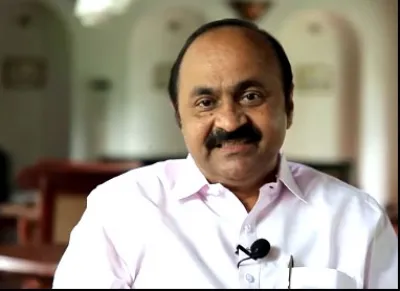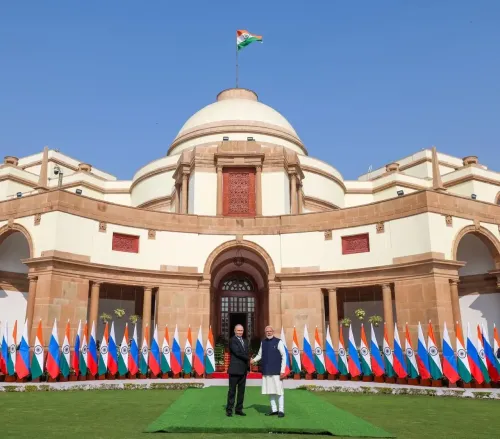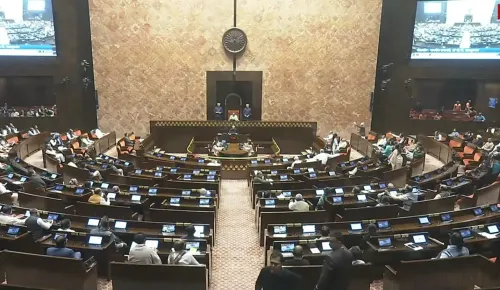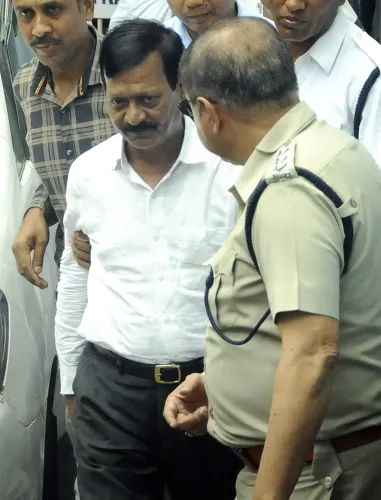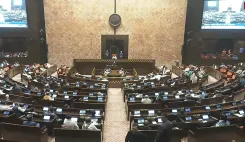GERI Achieves Over 614,000 Tests in Four Years, Earning ₹184 Crore: Minister Kunvarji Bavaliya
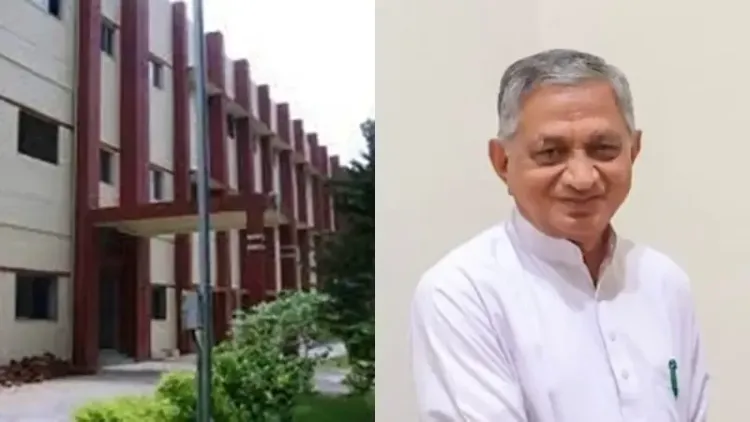
Synopsis
Key Takeaways
- GERI conducted over 614,000 tests in four years.
- Generated revenue of around ₹184 crore.
- Modern laboratories ensure quality testing.
- Significant increases in soil testing.
- Support for public and private construction quality.
Vadodara, Feb 14 (NationPress) The Gujarat Engineering Research Institute (GERI), located in Vadodara, has successfully conducted approximately 614,000 sample tests over the last four years, generating a remarkable revenue of around ₹184 crore for the state government, as stated by Water Resources and Water Supply Minister Kunvarji Bavaliya on Friday.
Minister Bavaliya elaborated that multiple laboratories, including those situated in Gotri, Vadodara, are operational throughout the state to examine materials for both public and private construction initiatives.
In the fiscal year 2021-22, more than 103,000 samples were tested, resulting in a revenue of ₹30 crore.
This figure rose to 133,000 tests and ₹42.74 crore in 2022-23, further increasing to 187,000 tests and ₹53.93 crore in 2023-24, and reaching 190,000 tests generating ₹57.46 crore by January in 2024-25.
These concerted efforts have cumulatively resulted in over 614,000 tests and generated ₹184 crore in revenue.
State Minister Mukesh Patel highlighted that, utilizing modern equipment and adequate human resources, GERI has carried out a total of 9,228 successful tests in critical areas such as soil testing, concrete mix design, and asphalt mix design over the past three years (2021-22 to 2023-24).
Soil testing notably surged threefold from 831 tests in 2021-22 to 2,646 tests in 2023-24, illustrating the government's dedication to delivering high-quality infrastructure in both public and private construction sectors.
Minister Patel stressed that Gujarat has reached significant milestones in ensuring quality in public and private construction through various tests. The longevity and durability of any public building or structure are contingent on the quality of its foundation.
To guarantee this quality, GERI's modern laboratories perform timely and scientifically accurate tests on buildings. GERI operates 24 modern laboratories across the state, including its headquarters in Vadodara.
Headquartered in Vadodara, GERI serves as a premier institution committed to advancing research and development in the realms of water resources and infrastructure within the state.
Under the auspices of the Government of Gujarat, GERI's core functions include the investigation and testing of construction materials, as well as providing consultancy and training services. Over the past four years, GERI has achieved remarkable milestones. The institute has successfully tested more than 614,000 samples, generating substantial revenue exceeding ₹184 crore for the state. This rigorous testing regimen has played a crucial role in enhancing the quality and durability of construction projects throughout Gujarat.
GERI's infrastructure comprises 24 state-of-the-art laboratories strategically located across the state, with the main facility in Vadodara. These laboratories are equipped with modern instruments and staffed by skilled professionals, ensuring accurate and reliable testing results.
For the fiscal year 2024-25 alone, up to the end of January, the institute conducted approximately 190,000 tests, contributing ₹57.46 crore in revenue. In addition to material testing, GERI has made significant progress in soil testing, concrete mix design, and asphalt mix design.
From 2021 to 2024, the institute accomplished 9,228 tests in these vital areas.
Notably, soil testing experienced a threefold increase, from 831 tests in 2021-22 to 2,646 tests in 2023-24.


